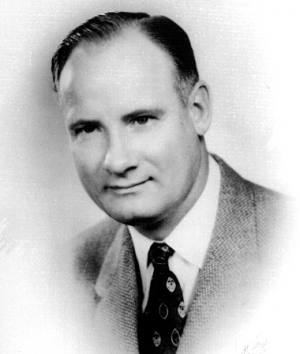In today’s acrimonious political environment where vitriol and venom are used to attack, demean and slander, where can one look for an example of civic leadership that brought people together to help solve an issue whose importance far outweighs the petty-by-comparison issues of today?
For such a leader, look to Lewes’ not-too-distant past for your answer.
In the late 1950s and early ‘60s, the fight for equal rights for African Americans was front and center on Delmarva. Segregation in housing, schools and public accommodations was rampant and mainstream political support for change was anemic at best. Into that void stepped an unlikely Lewes business and civic leader who simply thought that racial discrimination was evil.
Otis H. Smith was a transplanted New Yorker, owner of the menhaden fish-processing plants in Lewes, rock-ribbed Republican, stalwart anti-communist, and mayor of Lewes from 1950 to 1968. And, as titled by Dr. Thomas Brown in a soon to-be-published article in the 2019 edition of the Lewes History Journal, he was “Otis Smith - An Unlikely Civil Rights Pioneer.”
Dr. Brown describes Smith as a man with inexhaustible energy, who believed in the power of persuasion, and who would not take “no” for an answer. Smith also believed that bipartisanship was the most effective means by which he could accomplish his primary goal of desegregating public accommodations in Sussex County and elsewhere on Delmarva.
When Smith was appointed to the fledgling Delaware Advisory Committee of the U.S. Commission on Civil Rights in 1958, he immediately assumed a leadership role and began working across the political and societal spectrum to form the alliances that would be required to fashion effective civil rights legislation.
Oddly, one of his most difficult conversion efforts was liberal Delaware Gov. Elbert Carvel, who had appointed Smith to the state’s Human Relations Commission. Carvel was a strong supporter of civil rights but was reluctant to move forcefully on the issue because he didn’t believe there was a legislative consensus for change.
To convince Carvel and other political leaders that the time was at hand to provide equal access to all, Otis Smith embarked on a years-long crusade in which he reached out to fellow mayors, religious leaders, business owners, media outlets and politicians of all stripes.
Most of his contacts were personal because he believed that the power of reason and logic was made all the more effective when sitting face-to-face with someone.
Ultimately successful in his quest, Smith’s exhausting journey to achieve that success reads as an inspirational guidebook to those of us who yearn for a return to civility in public discourse and for an acceptance of those whose opinions may differ from ours but who are cut from the same imperfect cloth as ourselves.
I hope we are not at the point where it’s inevitable that every political opinion expressed on these pages and elsewhere must be met by yet another angry, mean-spirited response designed to vilify, not enlighten.
For a lesson in the innate decency and indefatigable determination of one man to right a great wrong, I urge you to read Dr. Brown’s article in the forthcoming Lewes History Journal. It will do your heart good.
Richard L. Claypoole is editor-in-chief of the Lewes History Journal.























































